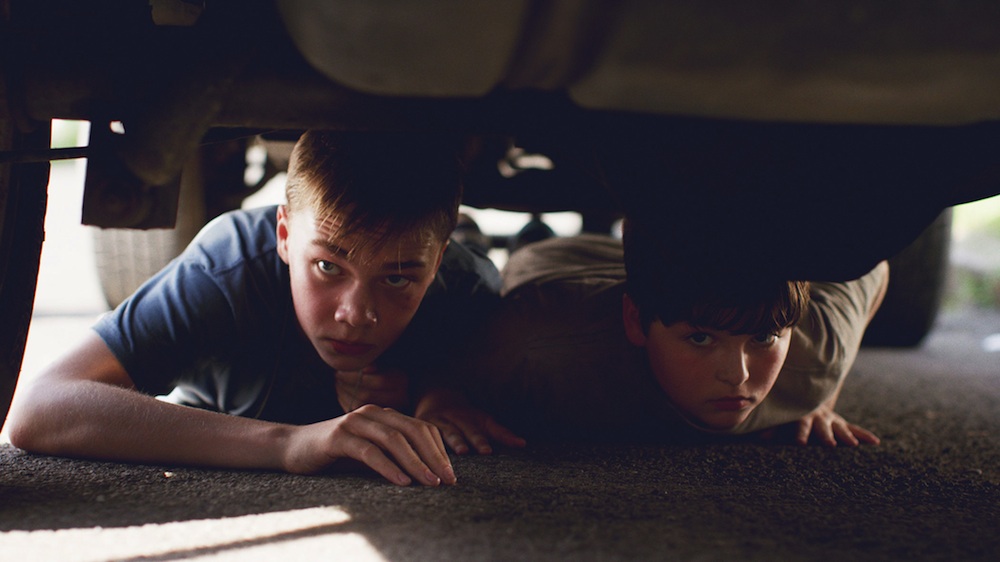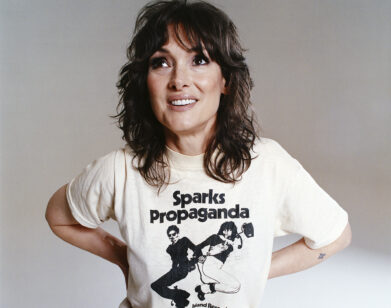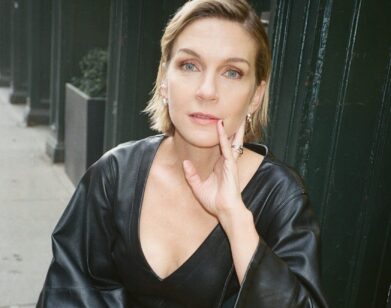Breaking the Bully Cycle

When Jack was a young boy, his father would lift him onto his shoulders and tout him around the house, proclaiming that he was king of the world. Now at age 15, Jack is still a boy, but he’s lost that royal glint in his eye. His father is gone, his mother is absent and overworked, and his adult brother couldn’t care less. Then there’s Jack, alone on his throne, slowly wearing away in his impoverished, working class community.
Played by Charlie Plummer in a breakout performance, Jack is the troubled, titular hero of King Jack. Over the course of a weekend, while watching his younger cousin Ben (Cory Nichols), Jack learns the value of selflessness—even if it means standing against the relentless tormenting and bullying of Shane (Danny Flaherty).
This quiet, poetic indie marks writer-director Felix Thompson’s feature-length debut and became a Tribeca Film Festival hit earlier this year, taking home the fest’s coveted Audience Award. In anticipation of King Jack‘s release in certain New York and Los Angeles theaters and via VoD this Friday, we spoke with Thompson about challenges in casting, avoiding the message film tropes, and drawing from life’s grey areas.
BENJAMIN LINDSAY: King Jack snagged the Audience Award at this year’s Tribeca Film Festival. Why do you think it resonated with audiences? Have you gotten any direct feedback?
FELIX THOMPSON: It’s such an interesting experience when you write something that is so personal and then cast and crew come onboard and pour their hearts into it and you have this project that means a lot to all the people involved. [Then] to see it go out in the world, when the lights go down and you hear that first laugh or that gasp in the right place, it’s a really incredible experience as a filmmaker. It’s what you live for. But we’ve had so many people from so many different walks of life come up to us and at the end of the screening and talk to us about why the film hit them. I think it’s one of those things we can all relate to. Ultimately it’s a story about the weekend that changes this one kid’s life, and I think we can look back on those moments in our past. Those are the fires in which we’re created.
LINDSAY: Is the world that you’ve created with King Jack a world that you know personally?
THOMPSON: I think every film has a kernel of truth in it, and that’s where I always start as a writer, whether it’s a character or a story or an image. As a kid, I grew up all over. I was born in Australia, moved to New York when I was young. My dad was from this small town in England and I spent my summers there. That was sort of the environment that the film was based on—one of those many towns that kids grow up in that I think get forgotten about; those towns you pass on the highway and don’t think twice about. That was a big part of the inspiration for the film. A lot of films that I see about those communities focus not on the people, but on dire circumstance or something like that. The human condition is attuned towards finding happiness in whatever surroundings we’re in, and I wanted to tell stories about that. Drinking those beers on the basketball courts or getting into your first fight or having your first kiss—those are the things you remember. It wasn’t the socioeconomic class you were in.
LINDSAY: Were there any particular challenges in filming?
THOMPSON: The biggest challenge we had with the film was always going to be in casting. This film was going to live or die on that, especially because our lead was going to be 15. It’s a huge ask to take this 15-year-old and say, “Hey, we’re putting this whole feature film on your shoulders.” I think that was something we were really weary of. If we hadn’t found the right Jack, I don’t think we would’ve made the film. I still remember when we first saw Charlie [Plummer’s] tape. You always have these ideas about the characters you’ve written. You want to stay as open as you can to whatever walks into the room because someone’s going to come in and is going to bring something that may be totally counter to what you thought or might just bring another layer to what you thought. Charlie definitely brought something out of Jack that wasn’t necessarily something I’d seen. The whole film took shape around that first tape. It brought out some of his vulnerabilities and insecurities in a really powerful way. He was so watchable; it was so understated. It was one of those moments where you’re like, “Okay, this film could work.”
LINDSAY: Something else I found hugely effective was the film’s cinematography in the hands of Brandon Roots. What’s your working relationship like?
THOMPSON: Brandon’s actually one of my oldest friends. Freshman year at college, we sat next to each other. He shot all my previous shorts. We’ve worked together in a lot of capacities. We’ve sort of developed this language, and I think we both had this feeling that the camera is ultimately an observer and you never want it to impose on the scene. So we want to get a sense of what the actors are bringing: What is it like in the room? If it’s not interesting in the room, I never think there’s this magic [where] the camera can make a dull performance fascinating. It has to exist and be alive there, and then your goal is to try and capture that, those moments of spontaneity, those moments of beauty. So for us, we really want to get it working and up on its feet, and then we think, “Okay, as an observer, what do we want to draw people’s attention to?” That was a really big thing for us: this idea of keeping the authenticity of these performances and never feeling like we were pushing them in one direction or another.
LINDSAY: In terms of capturing that authenticity, are you a filmmaker that does a lot of takes and picks and chooses from there, or is it staged in a way where it’s one or two takes and you’re good?
THOMPSON: The only reason to keep doing multiple takes is when you’re exploring something deeper. There’s always that joy. In the instances that we do start racking up the takes, it’s normally because the first take was so interesting, the actor brought something so interesting that we were like, “Oh, what if we push it in this direction or play with this?” The danger of the filmmaker is when you get into the habit of thinking you need to do more takes to get it right. As a director, the best thing you can do and your most important job is to set up a frame and a playground in which your actors can play honestly. Have a good bullshit detector and help guide them and just always have your finger on the pulse of what feels real. You cast someone because they bring their humanity to the role, and the idea that you wouldn’t listen to that in the room would be kind of foolish.
LINDSAY: Bullying is obviously a horrible truth, but I feel like the way it’s drawn in the film is in these shades of grey where it’s more a product of these characters’ circumstances rather than any sense of “boys will be boys” machismo. In a character like Shane, you feel like there was a chain of events that led to him picking on Jack.
THOMSPON: Yeah, I think one of the things I loved about Danny [Flaherty] as Shane was that when he came in, you could see the kid that had been tormented now enjoying his role as tormenter. All of us, there’s a reason for the way that we are. Chalking bullying or anything up to just bad kids or “boys will be boys” is too easy and I don’t think it’s true. There’s always this harsh pecking order in growing up. People are dying to stay on top and putting people down is one way to do that, but I think there’s a lot of things that, when you look at the kids who are acting out that, when you get down to the heart of it, explain why they behave in that way. That was something we really wanted to explore, and this idea that it’s cyclical and it gets passed down. These histories that we have don’t go away. As much as we didn’t want it to be a message film, we did want to touch upon this idea that there are cycles of bullying and cycles of violence, and it takes one person to break them, to not buy into it.
LINDSAY: And hopefully by the end, you’re getting the sense that Jack may be breaking out of that cycle.
THOMPSON: I think so. [Another] one of the reasons I wanted to tell this story was that I think the turning point for me was that moment you learn to care for other people more than you care about yourself. I had a lot of disciplinary problems until my little sister came along. It was this sort of eye-opening moment of, “Holy crap, this is another human being.” And seeing these emotions that she would go through and what an effect you could have on this person and how responsible and how protective I became over her was one of the first steps to me growing up. You need that moment where you realize you’re not the center of the universe.
CATCH KING JACK ON DEMAND AND IN NEW YORK CITY AND LOS ANGELES THEATERS THIS FRIDAY, JUNE 10. FOR MORE ON THE FILM, VISIT ITS WEBSITE.






